Former Tulane AD Kevin White named to NACDA’s 2022 Hall of Fame Class
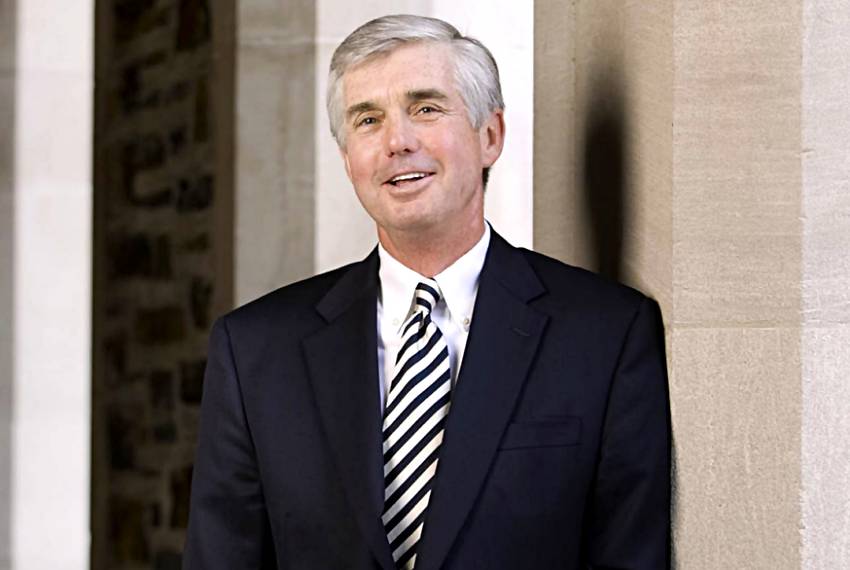
CLEVELAND —The National Association of Collegiate Directors of Athletics (NACDA) announced the Association’s Hall of Fame Class of 2022.
The list of inductees includes: Jeff Bain, Martin Methodist College; Jim Fallis, University of Northern Colorado; Brenda Hampton, Iowa Western Community College; Bill Hogan, Seattle University; Bruce Rasmussen, Creighton University; Dennis Thomas, Hampton University; Charlie Titus, University of Massachusetts Boston; and Kevin White, Duke University.
The honorees will be recognized in conjunction with the 57th Annual NACDA & Affiliates Convention at the Mandalay Bay Resort in Las Vegas, prior to the Featured Session on Monday, June 27 at 4 p.m.
 Jeff Bain, Martin Methodist College
Jeff Bain, Martin Methodist College
Jeff Bain came to Martin Methodist College (MMC), now University of Tennessee Southern, in 1993 as the special assistant to the President, with responsibilities of overseeing the MMC athletics department’s transition from a two-year institution to a four-year institution before taking over as athletics director. Bain retired in June 2021 after serving 28 years at the helm.
During his time at MMC, Bain provided leadership in an array of firsts; including: the creation of the MMC Sports Hall of Fame; the MMC Governor Ned McWherter Award of Excellence; MMC’s Intercollegiate Athletics Policy and Procedure Manual; MMC’s acquisition of land and the building of athletics venues at the school’s East Campus Athletic Complex; Student-Athlete Advisory Committee (SAAC); Champions of Character Program; Student-Athlete Enhancement Program (S.O.A.R.); sport management curriculum and intern program; creative marketing and funding opportunities for sports programs; and the addition of 10 intercollegiate sports teams (women’s soccer, men’s and women’s bowling, men’s and women’s tennis, women’s golf, men’s and women’s swimming, co-ed competitive cheer and co-ed clay target).
Under his guidance, the athletics programs captured 61 Athletic Conference Championships four NAIA National Championships (women’s soccer in 2005 and 2007, men’s soccer in 2013, and competitive cheer in 2016) and four Clay Target National Championships under the Association of College Unions International (ACUI) banner. In addition, Bain served on campus as an instructor of health education and sport management; as well as an instructor of character education within the NAIA Champions of Character and S.O.A.R. Programming.
Bain’s vision and excellence has been recognized by his peers 11 times, earning NACDA Athletics Director of the Year (ADOY) recognition in 2021, 2008 and 2002. He was also inducted into the NAIA Hall of Fame in 2021. In addition, he was awarded the 2014 Southern States Athletic Conference (SSAC) Athletics Director of the Year; as well as the TranSouth Athletics Director of the Year in 2013, 2009, 2007, 2001 and 2000. Bain was also named NAIA Region XI Athletics Director of the Year in 2001.
Bain served on MMC’s Senior Executive Cabinet during his 28 years as athletics director. He is a Past President of NACMA and NAIA-ADA, after previously serving as a Board member and Officer for both Associations. He served 16 years on the TranSouth’s Executive Committee as Treasurer. In addition, he completed a six-year term on the NAIA Region XI Management Committee, where he served as chair and presided on two NAIA National Councils. Bain was a member of the NACDA Executive Committee from 2015-19.
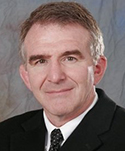 Jim Fallis, University of Northern Colorado
Jim Fallis, University of Northern Colorado
Jim Fallis served a combined 26 years as an athletics director at three institutions, after beginning his career in college athletics as a coach and college professor. He led the athletics department at Lake Superior State University (LSSU) from 1986-93, the University of Northern Colorado (UNC) from 1993-2004, and Northern Arizona University (NAU) from 2004-12.
During his time at Lake Superior State, the men’s ice hockey team won two Division I NCAA Championships (1988, 1992), women’s basketball and men’s cross country both competed on the national stage, and the wrestling team finished in the top-10 in the country for four years. Fallis also oversaw the completion of a new weight room and women’s locker room facility.
Under the guidance of Fallis, Northern Colorado athletics earned 31 conference championships and the football program won back-to-back NCAA Division II national titles in 1996-97 and 1997-98. Fallis hired the institution’s first female head athletic trainer and spearheaded the addition of men’s and women’s golf and softball teams to the department. UNC produced 17 Academic All-Americans and increased athletics’ overall GPA. Fallis was instrumental in raising $4.5 million to build a new on-campus football stadium, securing over $2 million to build new women’s locker rooms and a new wrestling room, and over $300,000 for the renovation of the baseball locker room at Northern Colorado.
In eight years under Fallis’ direction, Northern Arizona captured 30 Big Sky Conference championships in 10 different sports, including a season-high seven team championships in 2008-09. NAU received 27 Conference Coach of the Year accolades and its programs made 36 NCAA postseason appearances during that span. Fallis oversaw the largest facility renovations in NAU history, and negotiated the first department-wide apparel contract as well as the first television contracts with Fox Sports Arizona.
Fallis served as D2 ADA President in 1997-98, was part of the LEARFIELD Directors’ Cup Committee from 2002-12 (the last year as chair), and was a member of the NACDA Executive Committee from 1998-2002. He served on numerous conference and NCAA Councils and Committees throughout his career, including chair of the NCAA District IV Postgraduate Scholarship Committee (1989-92) and chair of the NCAA Division II Nominating Committee (2000-02). He is a member of five additional Halls of Fame: Lake Superior State University, University of Northern Colorado, NAIA, Division II Wrestling Coaches, and the NCC Hall of Honor.
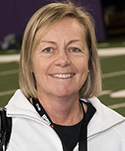 Brenda Hampton, Iowa Western Community College
Brenda Hampton, Iowa Western Community College
Brenda Hampton served as Iowa Western Community College athletics director for 14 years (2002-16), assistant athletics director for seven years (1995- 2002), head volleyball coach for 15 years (1988-2002) and head softball coach for eight years (1991-98). As athletics director, Hampton oversaw the expansion of Reiver athletics with the addition of men’s and women’s soccer, men’s and women’s golf, men’s and women’s cross country, men’s and women’s indoor and outdoor track and field, competitive cheerleading, football and wrestling, bringing the total number of sports offered to 21.
With the growth of the sport offerings the athletics facilities continued to expand. Football facilities were added with renovations made for locker rooms, coach’s offices and meeting rooms. Two full-size football practice fields were constructed on campus. Hampton collaborated with Lewis Central High School to have artificial turf installed on the football field for Reiver home games. She helped cut the ribbon on the outdoor track and field complex and moved the athletics staff into a new home with the expansion of the athletics and physical education facilities at the Kanesville Center. Hampton also put in motion the construction of new soccer fields on campus and renovations to the softball and baseball complex.
Hampton presented a bid and was successful in bringing the NJCAA National Wrestling Championships to Council Bluffs and the Mid-America Center for three years (2016, ’17, ’18), in addition to the NJCAA Division I National Volleyball Tournament (2007, ’08 and ’09). Serving as the tournament director for both championships, Hampton worked with more than 1,000 staffers and volunteers in planning and organizing the events.
The Reivers, having a noticeable presence among two-year colleges, placed in the top-four of the NATYCAA Cup (now Daktronics Cup) standings six times during Hampton’s tenure, including winning the cup outright in 2013-14. Iowa Western also won the LEARFIELD Directors’ Cup the same year.
During her time as AD, Hampton saw 205 student-athletes named NJCAA Academic All-American and 210 NJCAA All-Americans. Championship highlights include 19 national titles, one world championship in competitive cheerleading and numerous conference, Region XI and district titles.
A three-time NACDA Athletics Director of the Year honoree (2015, ’12, ’09), Hampton served as secretary of NATYCAA from 2010-16. In 2016, she was named the recipient of NATYCAA’s L. William Miller Award, for demonstrating excellence in leadership, service and integrity at a two-year college. She was also a member of the NACDA Executive Committee from 2013 until her retirement in 2016.
 Bill Hogan, Seattle University
Bill Hogan, Seattle University
Bill Hogan dedicated nearly 35 years of his career to serving as an athletics director, beginning at his alma mater, St. Joseph’s College (Indiana) from 1981-91, the University of San Francisco (1991-2006) and Seattle University (2006-16).
As the youngest athletics director in the NCAA in 1982, Hogan led what is regarded as one of St. Joseph’s College’s greatest decades of athletics achievement. He directed major facility projects, including a student recreation center and football field press box. Hogan also served as head men’s basketball coach and a tenured associate professor of business during that time, where he was voted “Professor of the Year” as a member of the business administration faculty by the Student Senate. Hogan was inducted into the St. Joseph’s College Hall of Fame in 1998.
While leading the athletics department at San Francisco, Hogan secured the largest donation at the time for athletics at the university and completed major capital renovations for War Memorial Gym and the baseball and soccer stadiums. San Francisco athletics achieved the highest level of competitive success in 2004-05 and 2005-06 since 1948, including the first ever West Coast Conference (WCC) Commissioner’s Cup, and tied the school record for the greatest number of sport teams earning NCAA Tournament berths. Hogan was recognized by NACDA as Athletics Director of the Year (ADOY) for his efforts during the 1999-2000 academic year. He also served as the first President of DI-AAA ADA in 2001-02.
Under Hogan’s watch at Seattle, for the first time in the history of the NCAA, a college or university successfully transitioned from Division II back to Division I status after a 33-year absence. Hogan increased Seattle’s athletics revenue generation from $30,000 to $3.15 million in 10 years, and successfully completed the NCAA Division I Certification process. He led the charge for adding six sports, tripled the athletics budget and doubled the number of student-athletes with exceptionally high graduation rates and APR scores. Hogan also developed substantial radio and TV contracts and upgraded facilities, including a new softball field, women’s basketball and volleyball renovations, soccer field and lighting improvement, an athletics administration building, and baseball synthetic turf all valued at over $34 million. Seattle athletics teams won 31 Western Athletic Conference (WAC) Championships from 2012-16 during Hogan’s tenure.
Hogan’s committee service in Seattle included the Seattle Sports Commission Executive Council, Seattle Chamber of Commerce, Seattle Convention and Visitor’s Bureau, the Seattle University Board of Trustees Advancement Committee and Athletic Oversight Committee, and the Executive Council of Special Olympics Washington.
 Bruce Rasmussen, Creighton University
Bruce Rasmussen, Creighton University
Bruce Rasmussen entered his 28th year as McCormick Endowed Athletics Director, and 42nd overall at Creighton University, in 2021-22, prior to his retirement on August 16, 2021. At the time he was the fifth-longest tenured athletics director in Division I at the same institution.
During Rasmussen’s tenure, Creighton rose to prominence with its success on and off the field, impressive facilities, and record-breaking fundraising efforts. Rasmussen also helped lead the charge for one of the biggest moves in school history when the school accepted an invitation into the BIG EAST Conference in March 2013.
Under Rasmussen’s leadership, Creighton has built new athletics facilities in virtually every sport, including the Michael G. Morrison, S.J., Stadium and CHI Health Center Omaha, Wayne and Eileen Ryan Athletic Center and D.J. Sokol Arena, TD Ameritrade Park Omaha, and the Creighton’s student center, later named the Rasmussen Center. Most recently, the spring of 2019 saw the opening of Ruth Scott Training Center, a practice facility for women’s basketball and volleyball.
Since Rasmussen assumed the role of athletics director, Creighton won 43 regular-season and 43 conference tournament titles, which helped lead to 90 postseason appearances. Since joining the BIG EAST, Creighton has won league titles in baseball, men’s basketball, men’s soccer, women’s basketball and volleyball. Creighton has appeared in the postseason in 22 of the last 24 years in men’s basketball, 24 of the last 29 men’s soccer seasons and 10 of the last 11 NCAA Tournaments in women’s volleyball.
Rasmussen served a five-year term on the highly esteemed NCAA Division I Men’s Basketball Selection Committee, serving as chairman in his final year in 2018. In 2019 he became Division I’s first four-time recipient of NACDA’s Athletics Director of the Year (ADOY) Award, an honor he also received in 2004, 2010 and 2015. Rasmussen was also honored by the Division I-AAA Athletics Directors Association with the 2019 Gary Cunningham Lifetime Achievement Award.
Rasmussen accepted the associate athletics director position in 1992 after going 196-147 during a 12-year run as Creighton women’s basketball head coach, which culminated in the program’s historic 1991-92 season. The 1992 Western Athletic Conference (WAC) Coach of the Year, Rasmussen led the 1991-92 Bluejay women to a program-record 28 wins (28-4), the WAC regular-season and tournament championships and a first-round NCAA Tournament victory in the program’s first-ever trip to the “Big Dance.”
 Dennis Thomas, Hampton University
Dennis Thomas, Hampton University
Dennis Thomas served as commissioner of the Mid-Eastern Athletic Conference (MEAC) from 2002-21, spearheading a period of two decades that saw the conference remain financially stable, strengthen institutional compliance and improve student-athlete graduation rates. In the process, he gained the distinction as one of the leading collegiate athletics administrators in America.
In 2010, Thomas realized one of his goals with the purchasing of the conference’s first office complex. The official headquarters, located in Norfolk, Va., marks the first time an FCS conference has owned its headquartered property without assessing MEAC institutions. A revolutionary, one year later, Thomas accomplished another first as he led the MEAC to become the first NCAA Division I FCS conference to institute instant replay during its televised regular-season football games, a feat that was accomplished in 2011.
Thomas brought a wealth of collegiate administrative and higher education experience to the MEAC. Prior to becoming commissioner, he served as director of athletics at Hampton University. In his 12 years of service, Hampton excelled on and off the field of competition. In addition to guiding Hampton from the NCAA Division II level to Division I, he demonstrated a strong commitment to student-athletes during his tenure by developing the athletic academic support unit to increase graduation rates.
Under Thomas’ leadership, Hampton won 17 Central Intercollegiate Athletic Association (CIAA) Division II championships between 1990 and 1995 and 11 MEAC championships between 1996 and 2002. Hampton was awarded the MEAC’s top honors with the 1999 Talmadge L. Hill All-Sports Award and the 2002 Mary McLeod Bethune Women’s All-Sports Award, symbolizing the overall strength of the athletics program.
Thomas has served as a member of the NCAA Division I Leadership Council and the NCAA Division I FCS Governance Committee, and he was a member and chair of the NCAA Division I Committee on Infractions and the NLI Policy and Review Committee. He has also served as the chair of the NCAA Division I FCS Commissioners Association and he served on the NACDA Executive Committee (2005-09) and the Walter Byers Scholarship Committee.
Thomas was inducted into Hampton University’s inaugural Athletics Hall of Fame Class in 2009. He has also been enshrined into the Alcorn State University Hall of Fame (2010), the Southwestern Athletic Conference (SWAC) Hall of Fame (2003) and the Black College Football Hall of Fame (2020). In 2022, Thomas will also be inducted into the College Football Hall of Fame and the MEAC Hall of Fame.
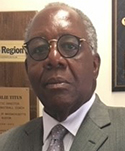 Charlie Titus, University of Massachusetts Boston
Charlie Titus, University of Massachusetts Boston
Charlie Titus retired as vice chancellor of athletics & recreation, special projects & programs at the University of Massachusetts Boston (UMB) in June 2020. Titus first arrived at UMass Boston over 40 years ago as the school’s basketball coach when the squad was a club varsity team. He took a break from coaching in 1980 to concentrate his efforts as UMB’s first director of athletics, a title he would embrace for 30 years prior to his latter appointment within the university.
Titus returned to the hardwood for the 1981-82 season and coached the Beacons to 233 victories in 29 seasons, in addition to a 74-37 mark in six years at the club varsity level to give him over 300 wins. The mentor guided UMass Boston to a 19-9 record in 1982-83 and its first ever NCAA tournament berth.
Titus was instrumental in the formation and development of the Little East Conference, which has evolved into one of the nation’s premier basketball alliances at the Division III level, served as chairman of the ECAC New England Division III Tournament Committee and has been a member of the NCAA Division III Membership and Tournament Committees. In 1999, Titus joined together with former NACDA Executive Director Mike Cleary and other athletics directors to establish the John McLendon postgraduate scholarship program, which has evolved into what is now the McLendon Foundation.
In addition to his commitment to basketball and UMass Boston as a coach and administrator, Titus tirelessly directs his energy into the Boston community. Still active with youth programs, Titus serves on the board of directors for several organizations, including the Bay State Games as well as the Boston Public School Sports Partnership, and over the past two decades UMB athletics has received national recognition with numerous community service awards.
In 2012, Titus earned a spot in the inaugural Little East Conference Hall of Fame class for his countless contributions to the Little East and Division III athletics. He currently serves as the Board chair of Boston’s Higher Ground and remains on several Boards including the Grimes King Foundation and Urban College of Boston.
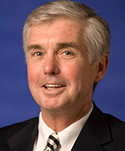 Kevin White, Duke University
Kevin White, Duke University
Kevin White retired as vice president and director of athletics at Duke University in August 2021 after serving in that role since May 31, 2008. He now serves as a professor of business administration at Duke’s Fuqua School of Business, where he teaches a popular course on sports business. White initially arrived at Duke after leading Notre Dame’s athletics program for eight years, in addition to previously holding AD positions at Arizona State University, Tulane University, the University of Maine and Loras College in Iowa.
White, one of the most experienced, distinguished and honored athletics directors in college sports, oversaw a Duke program that included 27 varsity sports, more than 700 student-athletes, more than 300 coaches and staff, and a physical education and recreation program that touched nearly every Duke student. Under his leadership, Duke captured eight NCAA championships – women’s tennis in 2009, men’s basketball in 2010 and 2015, men’s lacrosse in 2010, 2013 and 2014, and women’s golf in 2014 and 2019 – and 23 ACC titles. In all, 190 Duke squads advanced to NCAA postseason competition during White’s Duke tenure. Individually, 406 student-athletes earned All-America, 764 All-ACC and 331 All-Region or District honors under White.
Several significant facility projects were completed at Duke and led by White, including major renovations to Brooks Field at Wallace Wade Stadium, Blue Devil Tower and the Davis Family Kicking Field at the Brooks Practice Facility, a grand entrance and entertainment space to the front of iconic Cameron Indoor Stadium (Rubenstein Pavilion), the Scott Family Athletics Performance Center that now houses several of Duke athletics’ administrative units, as well as new strength and conditioning and sports medicine areas, a ticket office and team merchandise store.
Always in demand as a visionary leader, White currently serves as a member of the United States Olympic and Paralympic Committee (USOPC) Board of Directors. In October 2017, White was selected to chair the newly formed USOPC Collegiate Advisory Council (CAC) to guide and strengthen Olympic sport programming at the collegiate level. The 10-member CAC is charged with bridging the gap between high-contributing collegiate stakeholders and the Olympic and Paralympic Movement.
In 2019-20, White served as the chair of the NCAA Division I Men’s Basketball Committee. For several years, he was a member of the Advocates for Athletic Equity Board of Directors (formerly BCA) and a representative with the football Bowl Championship Series. In addition, he previously was an ex-officio member of the Sugar Bowl Committee during his tenure at Tulane, was a member of the Rose Bowl Management Committee while at Arizona State, and worked closely with the Fiesta Bowl during his stay in Tempe.
White was recognized as Athletics Director of the Year by NACDA in 2012-13 and 2005-06. He served on the NACDA Executive Committee beginning in 2003, before moving up the Officer ranks and becoming NACDA President for the 2007-08 academic year.
About NACDA: Now in its 57th year, NACDA is the professional and educational Association for more than 22,000 college athletics administrators at more than 2,200 institutions throughout the United States, Canada and Mexico. NACDA manages 17 professional associations and four foundations. In addition to virtual programming, NACDA hosts five major professional development events in-person annually. The NACDA & Affiliates Convention is the largest gathering of collegiate athletics administrators in the country. For more information, visit www.nacda.com.
- < PREV Sam Burns to make his debut at The Masters
- NEXT > NBA announces schedule changes for 2 Pelicans games





